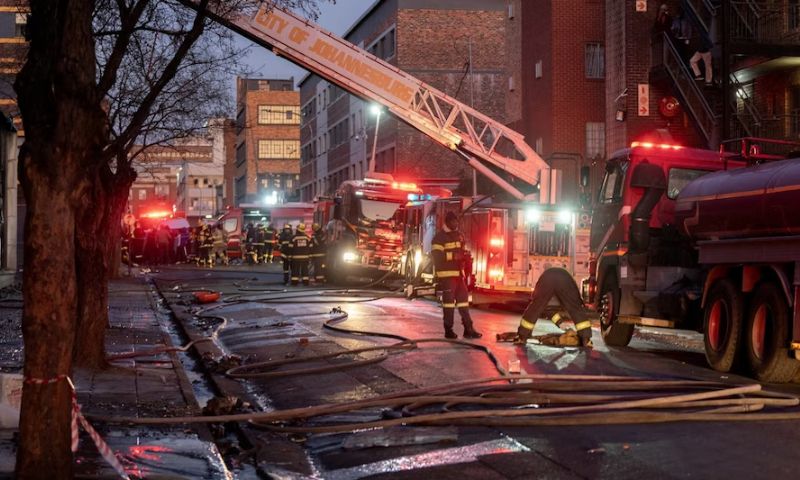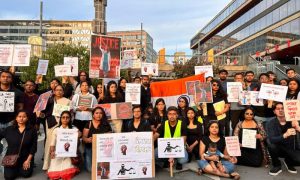JOHANNESBURG: The death toll from a terrible fire that destroyed a five-story residential building in South Africa’s capital Johannesburg has reached to 73, as rescue officials confirmed on Thursday.
The authorities said that more dead bodies have been recovered during floor-to-floor rescue operation, adding more than 50 people were injured in the unfortunate incident.
“I witnessed people in distress, some leaping from the building with their belongings. The scene was deeply harrowing,” recounted an eyewitness present on the street during the fire, speaking to Anadolu.
Robert Mulaudzi, the spokesperson for Johannesburg Emergency Management Services, addressed the media, revealing that the fire was reported at approximately 1:30 a.m. local time (2330GMT on Wednesday). While the inferno’s cause remains a mystery, authorities are actively investigating the incident.
Early in the morning, flames engulfed the building, sending plumes of thick smoke billowing into the Johannesburg sky. The city’s Emergency Management Services, led by spokesperson Robert Mulaudzi, swiftly responded to the catastrophe. The fire’s intensity led to the loss of 58 lives, with an additional 43 people sustaining injuries. Among the deceased was a young child, a grim reminder of the tragedy’s far-reaching impact.
Challenges in Response and Recovery
Johannesburg Emergency Management Services immediately launched a search and recovery operation. However, the sheer scale of the incident and the nature of the building posed significant challenges. The structure had been informally repurposed as a shelter by homeless individuals seeking accommodation without formal lease agreements. This makeshift living situation complicated the rescue effort, as no comprehensive records existed of the building’s occupants.
Informal Settlements: A Complex Issue
The tragedy has brought to light the pressing issue of informal settlements in urban areas. These settlements often arise out of necessity, with individuals seeking refuge in vacant or abandoned structures due to a lack of affordable housing options. While offering a temporary solution for those in need, these settlements lack the basic infrastructure, safety measures, and oversight that formal housing provides.
The presence of makeshift ropes and sheets hanging from windows raises questions about whether residents attempted to escape the flames or salvage their belongings. The absence of clear escape routes and safety mechanisms highlights the precarious conditions faced by those living in informal settlements.
The Way Forward
The fire in downtown Johannesburg serves as a stark reminder of the urgency to address the challenges posed by informal settlements. Governments, civic organizations, and urban planners must collaborate to provide accessible and safe housing options for vulnerable populations. Adequate housing not only ensures the safety and dignity of individuals but also reduces the risks associated with fires and other disasters.
In the aftermath of this tragedy, it is crucial to provide support to the survivors, the families of the victims, and the broader community affected by the fire. Additionally, improving emergency response protocols for informal settlements can help mitigate future incidents and protect lives.






















